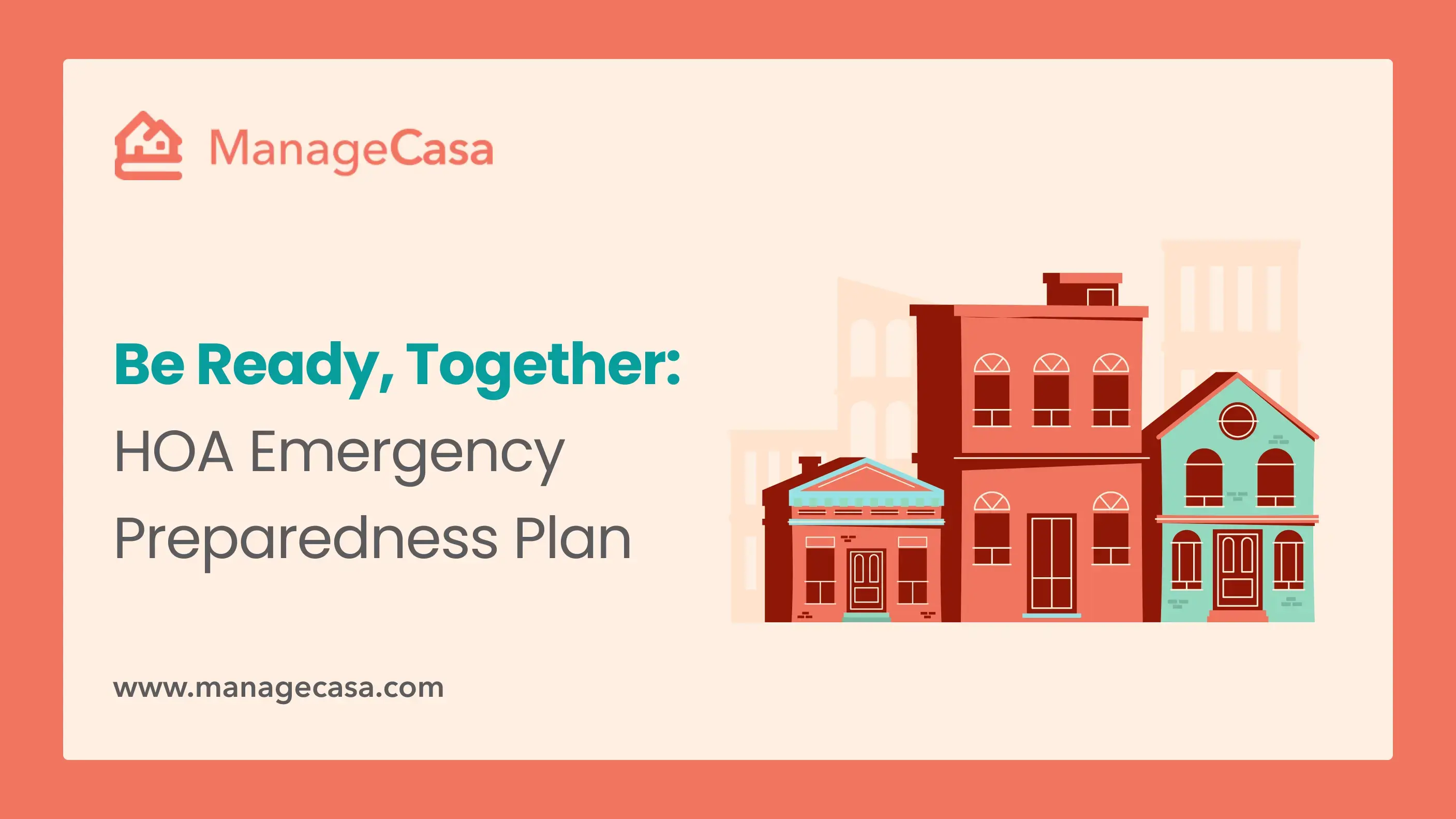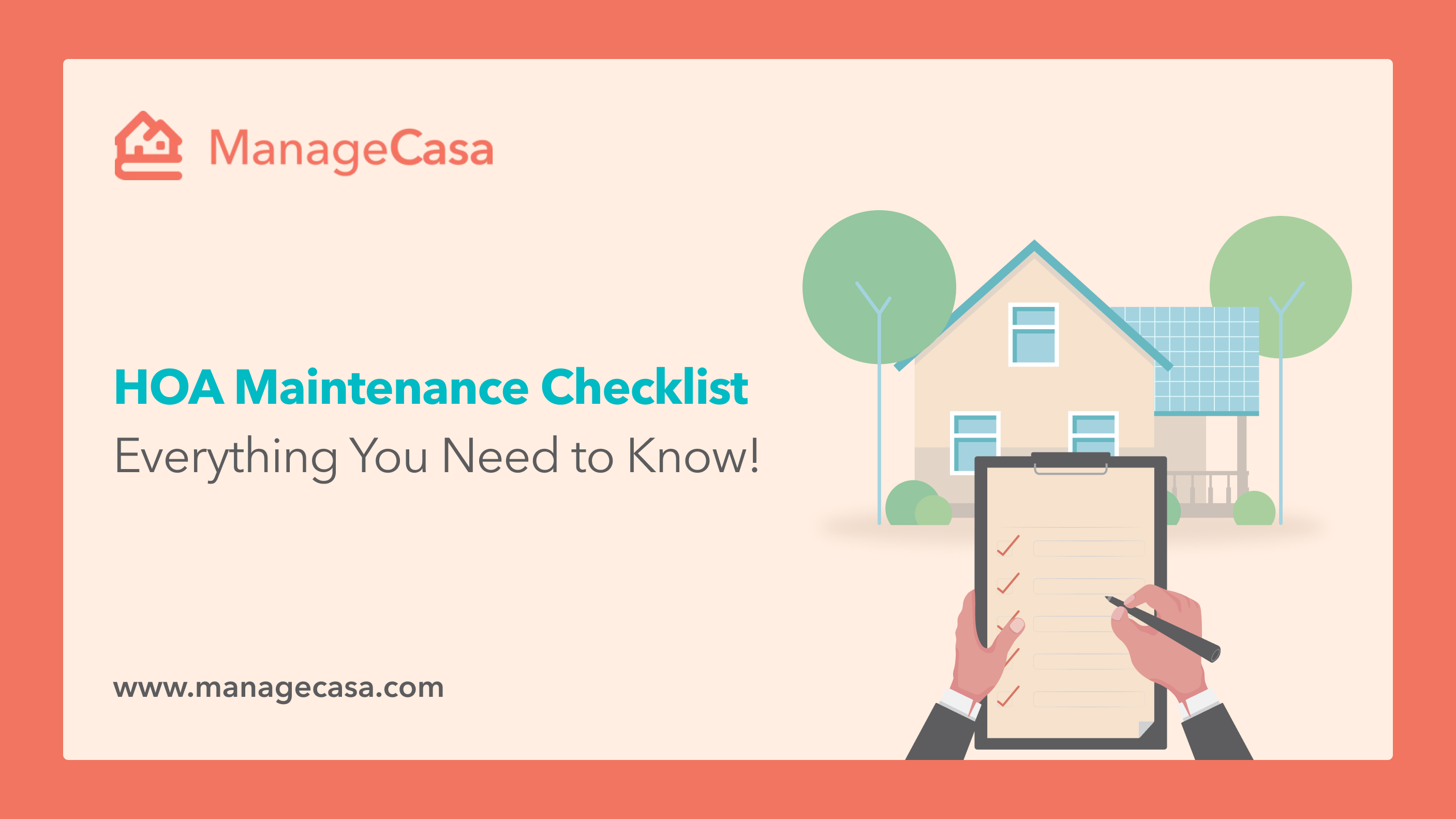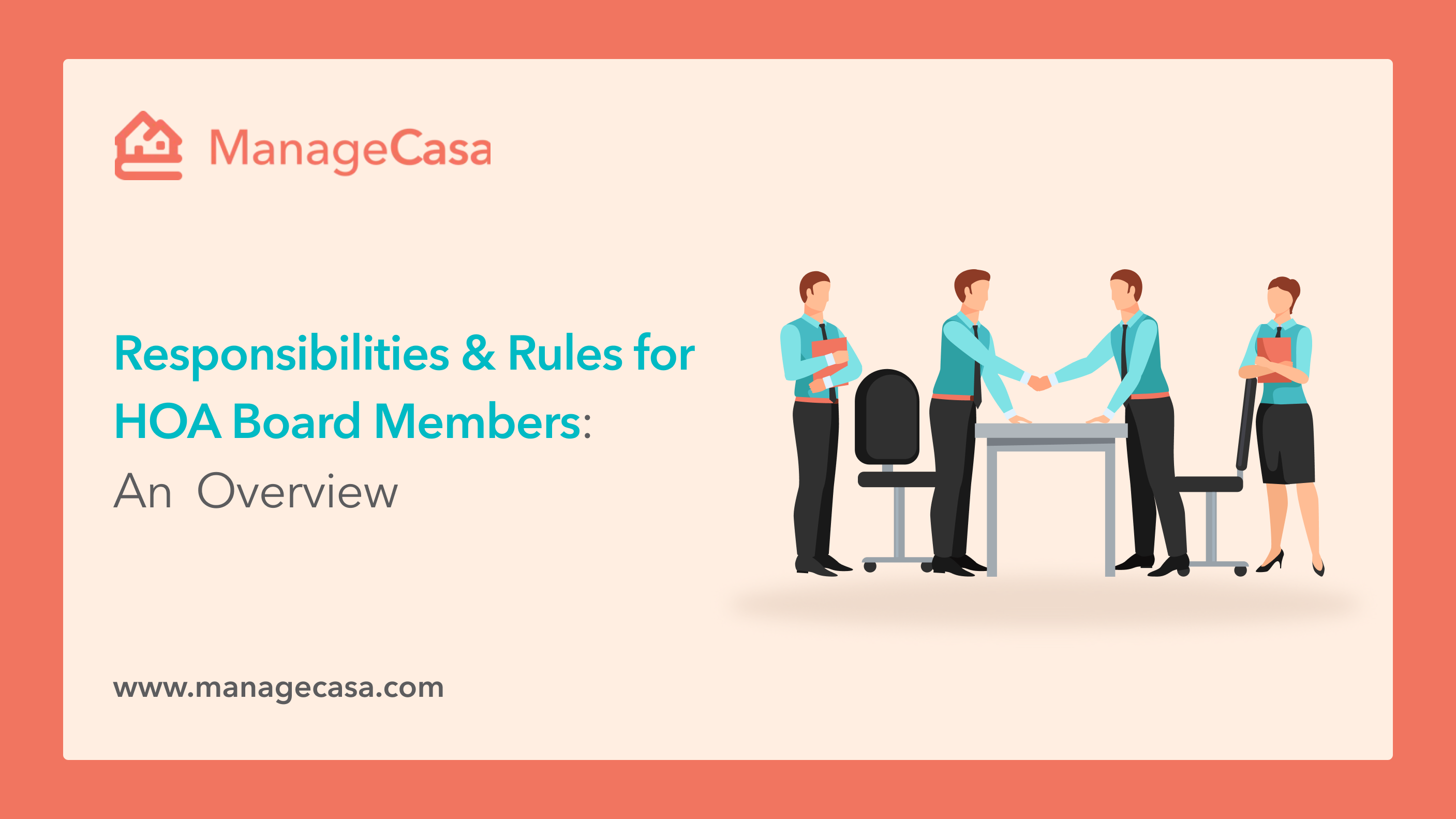Effective Conflict Resolution Strategies for HOAs
75.5 million residents across the US call HOA-managed communities home. That translates to roughly 206 residents per community – a significant number of neighbors sharing a common space.1
With so many people living in a neighborhood, disagreements are inevitable. However, HOAs can play a vital role in managing these conflicts efficiently. As we all may agree, effective conflict resolution is essential for fostering a positive community atmosphere and ensuring the smooth operation of the HOA. This guide will equip HOAs with practical conflict resolution strategies, promoting a more harmonious and positive living environment for all residents.
Before we discuss the key components and best practices for maintaining peace and order in your community, let’s examine some commonly known reasons for conflicts in HOAs.
Top 5 Causes of HOA Conflicts!

Conflicts within HOAs can arise from a variety of sources. Understanding these common issues is the first step toward effective conflict resolution:
1. Rules & Regulations
Disputes often arise over the interpretation and enforcement of HOA rules and regulations. Homeowners may feel that specific rules are unfair, inconsistently enforced, or infringe on their rights.
2. Maintenance & Repairs
Conflicts can occur when homeowners disagree with the HOA board on issues related to the maintenance and repair of common areas and facilities. These disagreements may involve the work’s quality, timing, or cost. Transparent and consistent communication about maintenance schedules and responsibilities can help mitigate these conflicts.
3. Financial Management
Disputes over HOA fees, budgets, and financial transparency are common. Homeowners may question how their fees are used or feel that assessments are too high. Providing detailed financial reports and involving homeowners in budget discussions can increase transparency and reduce conflict.
4. Personal Conflicts
Personal disagreements between homeowners or between homeowners and board members can escalate into more significant conflicts if not addressed promptly and professionally. It’s essential to have a transparent and fair process for handling personal grievances to maintain community harmony.
5. Architectural Changes
Homeowners seeking to change their properties, such as renovations or additions, may conflict with the HOA if their plans do not comply with community guidelines. Establishing a clear approval process and providing detailed guidelines can help prevent these disputes.
The Best Practices to Address Common HOA Conflicts

Having explored the potential causes of HOA conflicts, let’s delve deeper. This section will help you with specific approaches to addressing common HOA disputes effectively.
i. Parking Issues
- Create Clear Guidelines: Develop and communicate clear parking rules.
- Fair Enforcement: Ensure consistent and fair enforcement of parking policies.
- Designated Spaces: Implement designated parking areas to avoid conflicts.
ii. Noise Complaints
- Noise Ordinances: Establish noise ordinances and quiet hours.
- Communication: Encourage neighbors to communicate directly with each other about noise issues.
- Mediation: Offer mediation services for persistent noise complaints.
iii. Landscaping/Yard Issues
- Detailed Guidelines: Provide clear guidelines for landscaping and yard maintenance.
- Routine Inspections: Conduct regular inspections to ensure compliance.
- Community Involvement: Engage homeowners in community beautification projects.
iv. Pets
- Pet Policies: Establish and enforce clear pet policies.
- Pet Waste Stations: Install pet waste stations and provide disposal bags.
- Noise & Behavior Training: Encourage pet owners to train their pets to minimize noise and behavioral issues.
v. Personal Habits
- Community Norms: Foster a culture of respect and consideration for neighbors.
- Conflict Resolution Training: Offer training on conflict resolution and effective communication.
vi. General Lifestyle
- Inclusive Events: Organize community events that cater to diverse interests.
- Open Dialogue: Facilitate discussions to address lifestyle differences and find common ground.
vii. Appearance of Home
- Architectural Guidelines: Clearly outline acceptable standards for home appearance.
- Approval Process: Implement a straightforward approval process for exterior changes.
- Regular Updates: Keep guidelines updated and relevant to current aesthetic standards.
viii. Architectural Changes
- Clear Guidelines: Develop and distribute detailed architectural guidelines.
- Approval Process: Establish a transparent and timely approval process for property changes.
- Engage Homeowners: Involve homeowners in developing architectural guidelines to ensure they reflect the community’s preferences.
- Regular Communication: Communicate the importance of adhering to guidelines and the process for obtaining approvals.
Having explored the potential causes of HOA conflicts and specific approaches to address common HOA disputes, let’s delve deeper. The following section will briefly discuss general HOA dispute resolution strategies.
6 Strategies to Follow While Working on HOA Conflict Resolution

Effective conflict resolution involves a combination of proactive measures, clear communication, and fair processes. Here are some strategies to consider:
-
Clear Policies & Procedure Framework
Every HOA has a set of governing documents outlining rules and regulations for residents. These documents should be your first point of reference when addressing a conflict. By referencing these established guidelines, you can ensure a fair and consistent approach to resolving issues.
-
Maintain Open Communication
Encouraging open and transparent communication can prevent misunderstandings and build trust within the community. Regular meetings, newsletters, and online forums can help keep homeowners informed and engaged.
-
Mediation
Mediation involves bringing in a neutral third party to facilitate a discussion between the conflicting parties. A mediator can help identify common ground and guide the parties toward a mutually acceptable resolution.
-
Arbitration
In arbitration, a neutral third party hears both sides of the dispute and makes a binding decision. This process can be quicker and less formal than going to court, though it may involve legal costs.
-
Training and Education
Training board members and homeowners on conflict resolution techniques can empower them to handle disputes effectively. Workshops, seminars, and online courses can be valuable resources.
-
Regular Inspections and Maintenance
Addressing maintenance issues proactively can prevent conflicts related to the upkeep of common areas. Regular inspections and timely repairs demonstrate the HOA’s commitment to maintaining the community.
Conflict resolution is a cornerstone of a harmonious and thriving HOA community. By understanding common flashpoints and implementing effective resolution strategies, HOA boards can foster a positive environment where residents feel valued and respected.
The ultimate goal: Resolve disputes collaboratively and build a strong, connected, and resilient community.
However, managing day-to-day tasks alongside conflict resolution can significantly burden HOA boards. This is where property management tools like ManageCasa can provide invaluable support. Let’s learn more about it.
ManageCasa: One-Stop for All Your HOA Management Needs!

At ManageCasa, we deeply understand the challenges and nuances associated with community association management. Leveraging our eight years of experience in the property management industry, we’ve become a trusted resource for more than 2000+ community association/property managers managing thousands of HOAs and COAs.
Moreover, landlords, property managers, and COA/HOA managers have experienced increased productivity with our streamlined platform, leading to fewer disputes and high labor cost savings.
ManageCasa also empowers HOAs by:
- Facilitating Clear Communication: Streamline communication between residents and the board, fostering transparency and trust.
- Enhancing Information Sharing: ManageCasa provides a centralized platform for sharing important documents, notices, and updates.
- Simplifying Administrative Tasks: The platform streamlines administrative tasks, freeing up board members’ time to focus on conflict resolution and community building.
By leveraging a tool like ManageCasa, your HOA can efficiently carry out operations, promote open communication, and create a more positive and collaborative environment for all residents.
So, what are you waiting for?
Schedule your DEMO now & let’s work towards a brighter future for your HOA!
FAQs (Frequently Asked Questions)
Q1: How can HOAs prevent conflicts related to rules and regulations?
HOAs can prevent conflicts by establishing clear, well-documented rules and consistently enforcing them. Regularly communicating these rules through newsletters, meetings, and online platforms ensures that all homeowners know and understand the regulations. Additionally, involving homeowners in the rule-making process can foster a sense of ownership and compliance.
Q2: What should an HOA do if a conflict arises over maintenance and repairs?
HOAs should maintain transparency by regularly updating maintenance schedules, costs, and progress to resolve maintenance and repair conflicts. Establishing a precise feedback mechanism for homeowners to report concerns and ensuring timely responses can also help. A fair bidding process for selecting contractors can mitigate disputes over the quality and cost of work.
Q3: How can an HOA address personal conflicts between homeowners?
HOAs can address personal conflicts by offering mediation services to facilitate discussions between the parties involved. Providing conflict resolution training for board members and homeowners can equip them with the skills to handle disputes effectively. A transparent and fair complaint process ensures that all grievances are heard and addressed promptly.


